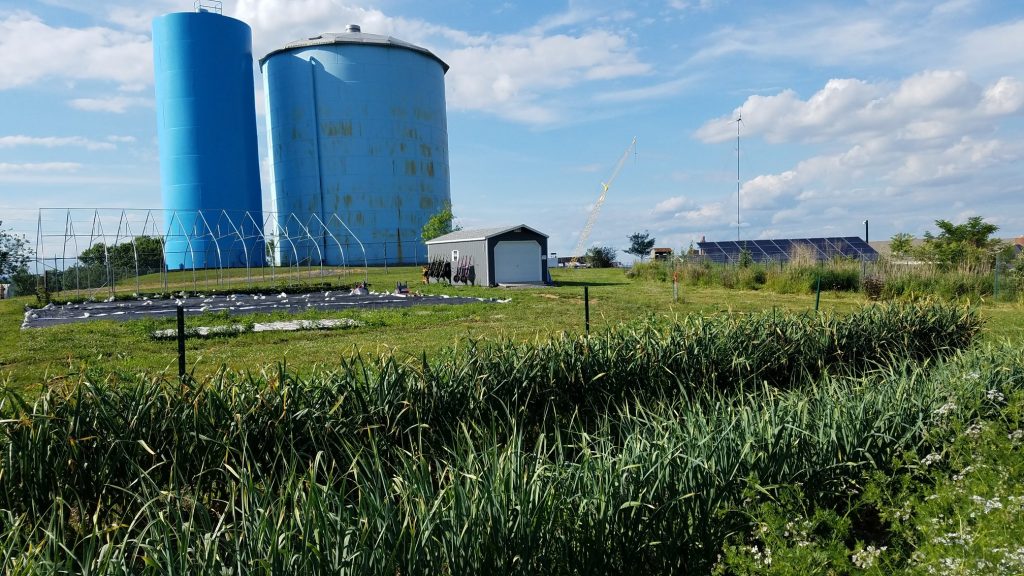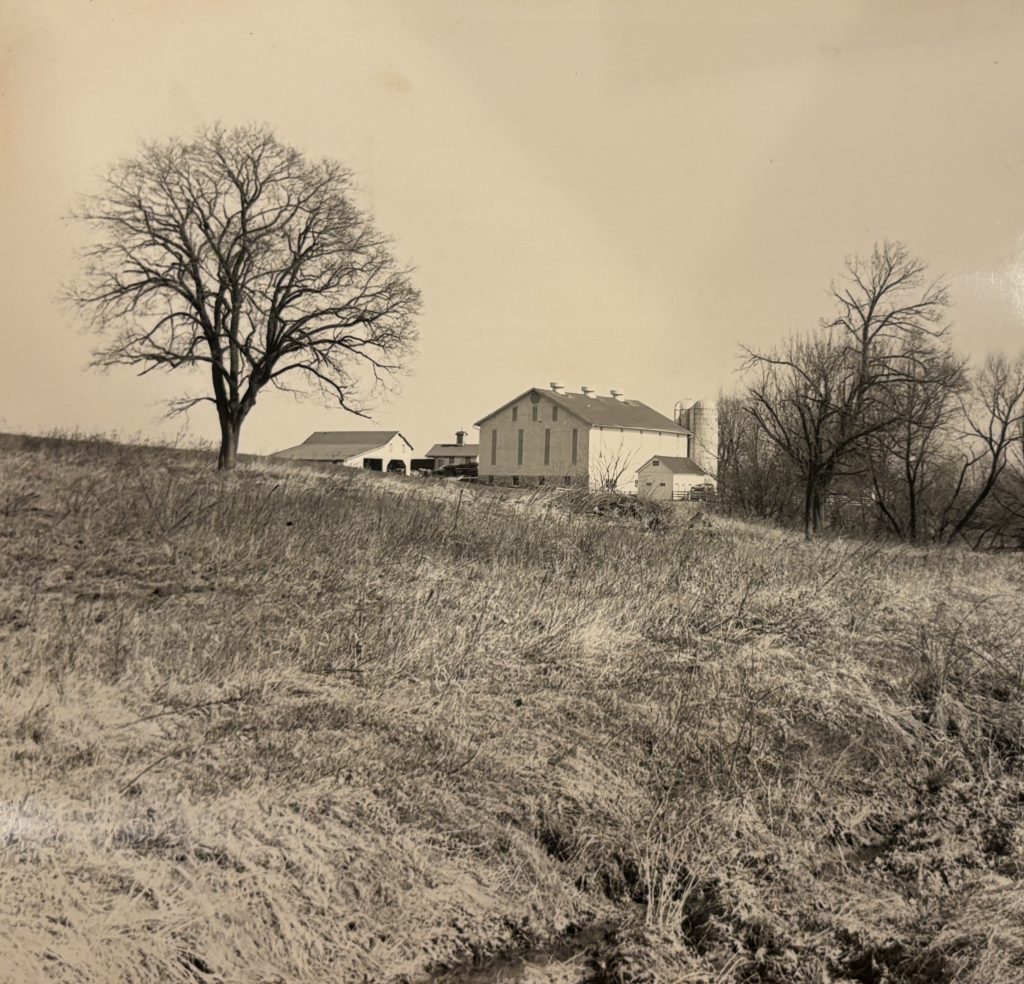In the southeast corner of campus nestled on top of the hill and down into the valley below sits the Bucknell Farm. The farm is divided into several unique sections that each receive their attention involving the restoration efforts on campus. Packed with a vegetable garden, an orchard, and a food forest the farm is blossoming with potential and the delicious beginnings of fresh meals.

The vegetable garden houses a large variety of plants, the orchard will eventually contain nearly 90 fruit trees, and the food forest will eventually be a self-sustaining ecosystem featuring dozens of native trees, shrub species, and perennials, alongside edible nuts, berries, and mushrooms.
Alongside these projects, the farm is lined with perennial grasses and flowering plants “that play a very important role in helping us to recycle nutrients and to attract beneficial insects and birds that play a pivotal role in the ecology of the farm,” explains Professor Mark Spiro who acts as the Associate Professor of Biology and Farm Director.

According to historical photos of the land, the farm acted as agricultural land to produce vegetables such as corn and soybeans. Today, Bucknell Farm produces a large variety of growth. The farm also embraces regenerative agriculture, viewing ecology as a partner in food production. This shift prioritizes highly nutritious food while fostering a healthy environment.
Traditionally, farming depends on harmful pesticides to keep critters at bay, however, these pesticides are not just a danger to the insects; they’re a danger to us as well. The Bucknell Farm prioritizes ecological solutions over chemical ones. Legumes such as peas and beans, fix nitrogen in the soil thus eliminating the need for external fertilizers. Similarly, cover crops improve soil quality by adding organic matter and retaining moisture. This approach not only reduces dependence on fossil fuels but also contributes to lessening carbon produced, therefore helping to combat climate change.
“I am able to talk to students about principles of ecological restoration and ecological principles of agriculture in very large numbers of students so that has been very rewarding to get that message across” Professor Spiro passionately explained while reflecting on his experiences with his students. By passing on his passion for ecological restoration, Professor Spiro is inspiring the next generation of students and promoting healthy living at the same time.
Through the initiatives of the Bucknell Farm, it is not only producing nutritious food in an ecologically mindful way but also fosters a deeper connection to the land and its ecosystems. By inspiring students and promoting ecological principles, the Bucknell Farm is not just cultivating crops; it’s promoting a greener, healthier future for all.
Clip of interview: https://mediaspace.bucknell.edu/media/Clip+of+Professor+Spiro+Interview/1_2k75b341
Photo 1: https://www.facebook.com/photo/?fbid=603960730325588&set=pcb.603963776991950
Photo 2: Bucknell Archives
Resources:
- “The Bucknell Farm.” Bucknell University, www.bucknell.edu/life-bucknell/sustainability/bucknell-farm. Accessed 19 Mar. 2024.
- Granados, Xochitl ‘25. Bucknell Greenway, 10 August 2023. Independent Study.
- Martin, Laura J. Wild by Design: The Rise of Ecological Restoration. Harvard University Press, 2022.
- Thames, Brooke. “Traverse a New Trail.” Bucknell Magazine, 1 July 2022, magazine.bucknell.edu/issue/summer-2022/traverse-a-new-trail/.
